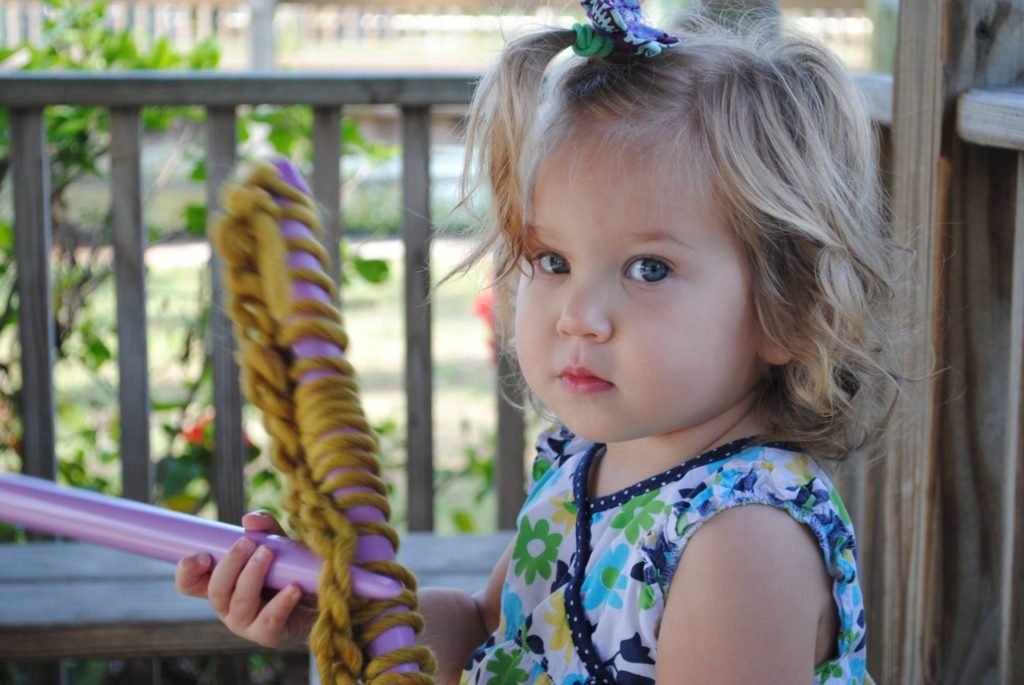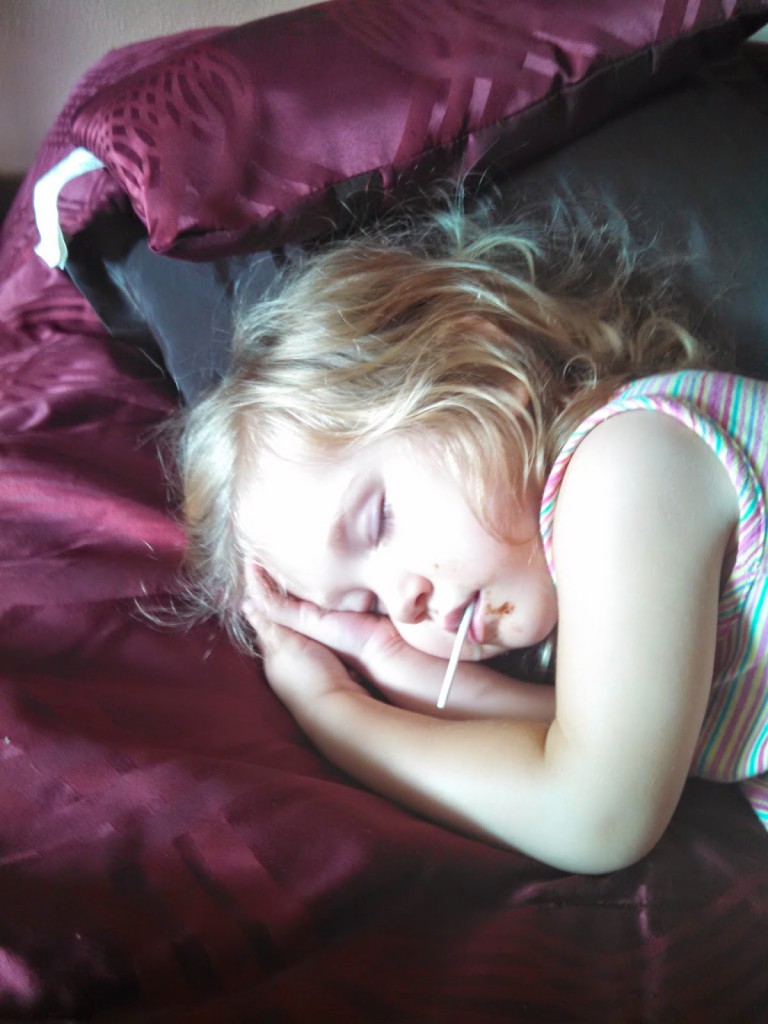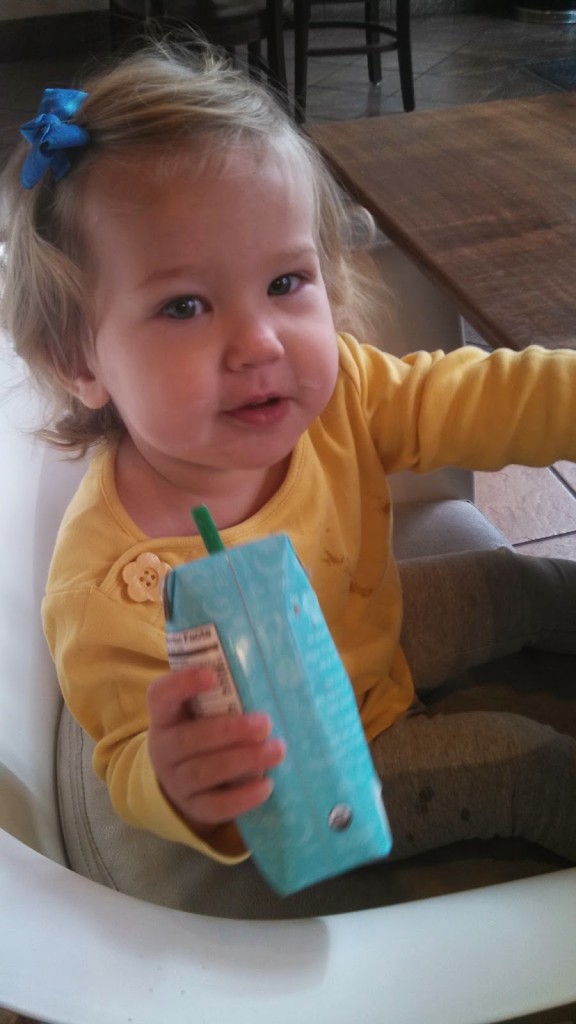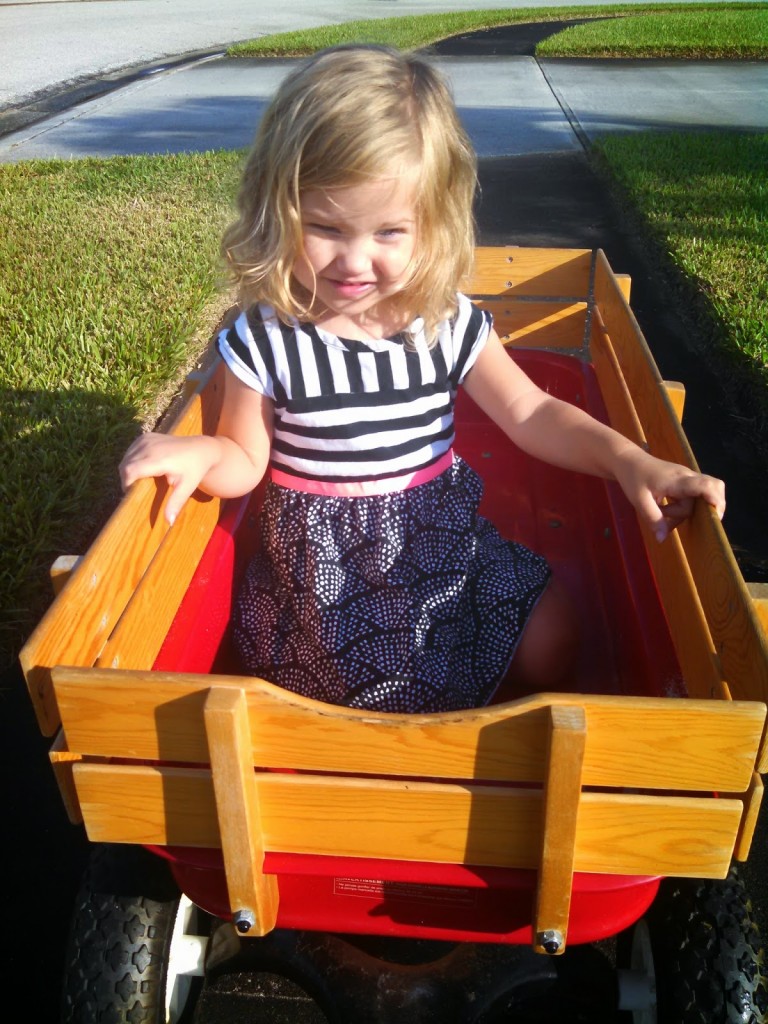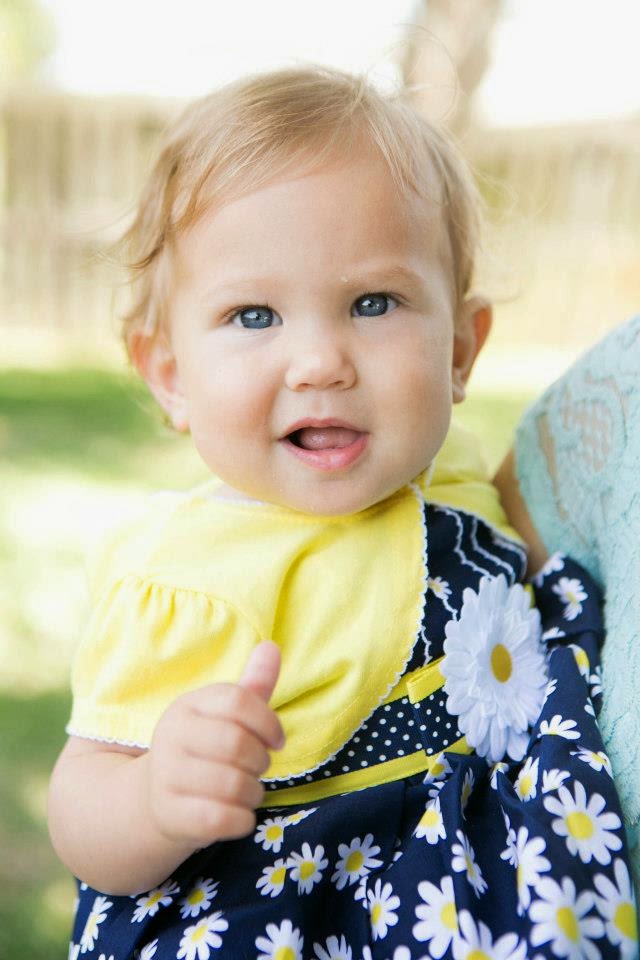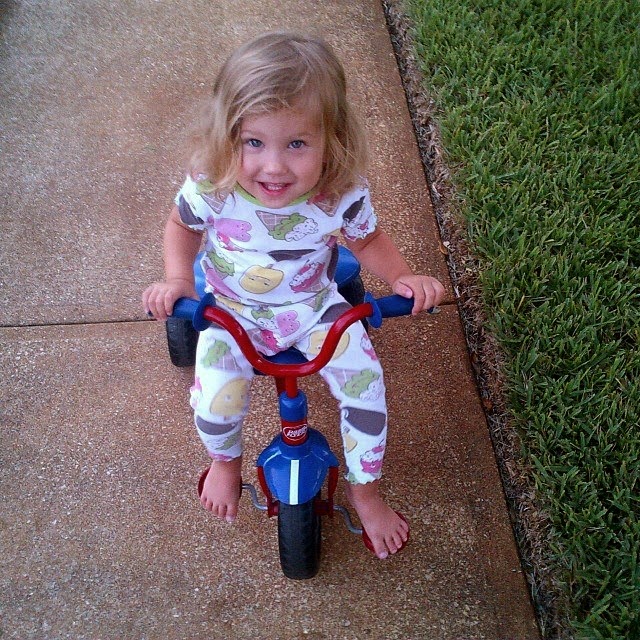What life looks like when your high needs baby grows into a high needs toddler
My daughter Erinn was the poster child for what child behavior expert Dr. William Sears has coined a “high needs baby.” She woke frequently at night until about the 11-month mark, napped inconsistently and for very short spurts, refused to sit in bouncey chairs or other made-for-baby contraptions, angrily and fiercely rejected bottles or pacifiers, and needed to be in perpetual motion which meant the lucky parent who was wearing or holding her at every moment needed to keep moving.
With three older kids already in the house and two working parents, Erinn’s first year of life was challenging, to say the least. Not to make myself or my husband out to be martyrs — we had a healthy, bright and beautiful little girl — but it was an exhausting time for everyone.
Fast forward 2.5 years from the day she came shrieking into the world and the days of our high-needs baby are long gone. What we have now is a high needs toddler who does not require the same type of attention the baby version did, but is still a handful. I thank my lucky stars every day that I’m able to work from home on a flexible schedule and that my husband is usually here working too. It makes the long days with her more bearable and gives us both the opportunity to hide in a bathroom or closet once in awhile and have a few moments of peace before returning to her demands.
Aren’t all toddlers “high needs” though? The constant demands, whining, frustration, fit-throwing? Yes. Like babies, all toddlers are high-needs in many ways by definition. In fact, if Erinn was the first child for either my husband or I, we would just think this is what it is like to parent a toddler (and a baby before that). Since we have the insight of experience with three older than she is and now one who is younger, we have the ability to compare her behaviors with theirs and determine its relative normalcy. Erinn, my friends, is not a typical toddler. So what makes her a high needs toddler?
The best way to describe her personality is intense. Everything has 100 tons of horsepower behind it — whether she is singing the alphabet song, laughing loudly at the top of her lungs when her siblings are silly, or slamming her sippy cup down right in front of you and demanding “Juice cup now.”
A neighbor who lives across the street, and over two houses, was in her kitchen one day when she heard a screaming fit that Erinn threw on our front porch when we tried to put new shoes on her feet for the first time. She wanted the old shoes and even when we found the old shoes and said “okay!” she continued to scream at the very suggestion we would ever ask her to wear anything other than the ratty, tight, falling-apart old shoes. Our not-so-close neighbor later asked me who got hurt earlier in the day. When I looked at her puzzled, she said “I was in my kitchen and heard someone screaming like a bone had been broken. Is everyone okay?” I explained that it was Erinn and she was upset over a pair of shoes. My neighbor nodded, knowingly. Everything with Erinn is larger than life.
But I digress… If you have a baby with high needs characteristics, here’s a look at what you might be wondering as you transition to the high needs toddler years.
Will my high needs baby EVER sleep through the night?
Yes, but not permanently. I was thrilled when Erinn finally started sleeping for 6 to 8 hour stretches at a time, but she has regressed several times since. There will be a few months of nighttime serenity followed by a few weeks (or longer) of her waking again. All toddlers go through these wake-up spurts, of course (check out the theory of Wonder Weeks to learn more about why), but the difference with high-needs toddlers is that they do not settle back down very easily — or at all.
We’ve learned that if we don’t tend to Erinn quickly enough at night (self soothing is not her forte), she will wake herself completely up and stay awake for several hours. Trying to turn on the living room TV and snoozing yourself on the couch once it is obvious she’s going to be up for awhile is pointless. Not only is she awake — she wants you to be awake too, and uses every means necessary to keep it that way. Poking your closed eyes. Pinching your arms. Hitting you in the face with a sippy cup. Shrieking at the top of her lungs right in your face if you neglect to fully wake during the earlier attempts.
Dr. Sears has this to say about the waking patterns of high-needs children:
These babies come wired differently, day and night. Their supersensitive nature during the day carries over into their sleep habits during naps and nights. Their keen awareness and curiosity about their environment carries over into being awake and aware at night. It seems these babies have some internal bright light that stays on all day and isn’t easily turned off at night.
It does not get a whole lot easier putting them to bed at night either. Erinn fights sleep with every ounce of her being. The idea of routine at bedtime is sort of lost on high-needs kids because when they realize you are starting the nighttime steps, they panic. Even once she drifts off there are nights, for no apparent reason that we can find, when she gets up several times. What works one week for getting her to sleep does not work the next one. She doesn’t just dislike bedtime. Something inside her believes she must fight it until her body finally shuts down. As she is getting older, we are able to give her some independent activities at bedtime — a book to read on her own after we’ve tucked her in, for example. But sleeping is still a challenge, even after she started “sleeping through the night.”
When will my high needs toddler need me less?
Erinn started to get easier when she became mobile. She was crawling at 5.5 months, before she could even sit up, and once she had a little bit of movement independence, she became less clingy. LESS. But still clingy. She seems to constantly be asking someone for something. For awhile I felt like as the day went on, she was less needy because she would not ask for quite as many things from me. Then I realized that she just transferred the asking from my husband and I to the older kids when they got home from school. She stores up all the things she wants from them while they are away and then almost strategically rattles those things off from the end of school until bedtime.
The speech therapist told us to make sure family members do not anticipate what she wants, but instead wait for her to actually ask. When you see Erinn coming, though, it is often easier just to grab the item in advance. I have to stop myself from this anticipation several times per day to coincide with what her therapist has asked us to do.
Will my high needs baby act like a “normal” toddler?
This depends on your definition of normal and also other factors like older siblings, and whether they have any additional issues such as injuries sustained in birth (learn more about these conditions) that could cause differences in behavior, for example. In our case, Erinn is not very interested in other kids her own age. She notices and immediately responds to babies and older kids (like her siblings’ ages), but when another child her age is around, she couldn’t care less. Is this a high-needs behavior, or an isolated personality trait? I honestly don’t know. My husband is not very outgoing (he admits) and says he has never been friendly just for the sake of being friendly. He’d rather keep to himself than conjure up small talk. So perhaps Erinn comes by this not-overly-friendly-or-interested-in-others trait honestly. If you have a high-needs toddler, I’d love to hear if yours is like this too.
Erinn also has a slight speech delay that we’ve been told by a few experts is likely personality-related as well. She has no desire or immediate need to talk in many instances, so she does not. Since starting speech therapy, her language has grown a lot but next to other 2.5 year olds, she is much less verbal. She’s had initial testing (as part of the speech delay diagnosis) for spectrum disorders or learning disabilities and was cleared of all of them. She just isn’t friendly sometimes and my people-pleaser personality is trying to adjust to that.
If either of these traits are in fact high-needs related, I think I have a theory as to why: High-needs kids are hyper-self involved. As a culture, we look down on selfishness as a flaw or something that is a learned behavior from parents or other family members. In the case of a high-needs baby or toddler though, that selfishness is based on a personality that is often incapable of seeing beyond the child’s immediate needs. It’s really a sign of intelligence and probably why there weren’t many of these high-needs cave kids who ended up being eaten by T-Rexes. These kids are problem solvers and that means creating an optimal environment for whatever it is they want to accomplish. They don’t need friends, or to talk, if they are accomplishing everything without either.
I want more kids but I’m terrified I will end up with another high needs baby. Am I a bad person?
If you’re a regular around here, you may remember the time I neared a complete mental breakdown when I discovered I was unexpectedly pregnant again, while still in the throes of adjusting to a high-needs child. I was really, really embarrassingly upset about it. I had four kids already, and one was Erinn. I just knew I did not have the mental fortitude to go through it all again, not if history was going to repeat itself.
As if reading my mind at different points in the pregnancy, my husband would pull me in close for an impromptu cuddle and say “It can’t happen twice. Don’t worry.” He’s not a genetic scientist but in this case, it turned out he was right. Our three-month old baby is already sleeping through the night, every night, nurses on a normal schedule and has accepted a bottle on the few occasions we have given her one for whatever reason. Is she a “better” baby than her older sister? No. She’s just a different person completely. Both are incredible kids in their own ways.
Other families I know in person and ones I’ve met through my writing say that it was the same in their households — only one out of three, four, five or more kids fit the high needs toddler description. Genetics alone do not create a high-needs baby. I have no idea what does, but if you are anxious about getting “another one” be reassured that based on my very unscientific research, lightning does not seem to strike twice.
And even if the odds end up in your favor, you’ll know the ropes with a second high needs baby and will know there is a light at the end of the tunnel and that this too shall pass. If the high needs toddler years are any indication, it’s going to continue to improve from here.
Does it get easier?
Yes. Not easy, but easier. The baby who needs you every waking hour (and there are a lot of those) will gradually find some independence. Since that independence will be cultivated all on the baby’s own, it will stick. High-needs babies/toddlers regress less when it comes to independent activities, but it takes them longer to get there in the first place. Two minutes of playing independently will morph into five, 10, 20 and longer. You’ll try to give your new walker a hug one day and she will squirm out of your arms and run away. It may not seem possible if you are adjusting to a high-needs infant right now, but it will happen.
The best answer I can give to the question of if it gets easier is this: Be nice to yourself. If you are blaming any of the legitimate high needs toddler or baby behaviors on yourself or your spouse or any other caregivers, stop. Feeling like you are doing something “wrong,” or that you can “fix” your high needs toddler is flawed and won’t do much but leave you feeling deflated. Parenting a high needs child is challenging, and intense, and revealing all at the same time. You’ll become more patient with your other kids, more empathetic to other families going through who-knows-what with their own kids, and you will grow closer to your parenting partner. This is true for high needs toddlers and babies — and I’m guessing for the many years to follow.
I’ll even throw this silver lining out there for you — parenting a high needs toddler and child is rewarding. These kids are bright, and unpredictable, and tend to light up a room when they enter it. They are fiercely loyal and make it pretty clear to their parents that they are the only two stars in their skies. Don’t try to change your high needs toddler. Try to parent him or her the best way you can while respecting his or her personality. Admire the intensity in even the overwhelming moments because one day you will see just how the high-needs early years shaped the wonderful people they become. That’s what I’m going with anyway and you should too.
UPDATE: Since this post, Katie has written about Erinn’s progress. Read:
5 Years of High Needs: The Bright Side
Let’s connect on social media:
Mumbling Mommy on Facebook
Mumbling Mommy on Instagram
Mumbling Mommy on Pinterest
Mumbling Mommy on Twitter
You may also enjoy these posts:
What I learned the first five years as a parent
A letter to my little girl on her fourth birthday
New baby: The siblings who didn’t care
Changing the newborn mentality
Category: BabiesTags: fussiness








